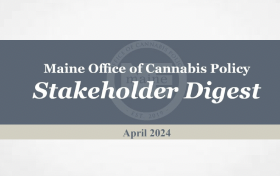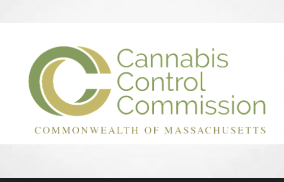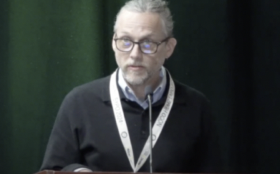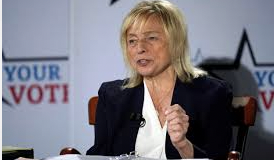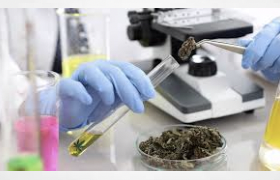They write….
In this week’s edition:
- Plans to vote on cannabis banking legislation announced in both chambers of Congress, with predictions that House will pass the SAFE Act by the end of October
- DEA increases the cannabis research quota
- Battle heating up over Florida ballot initiative to legalize cannabis for adult use
- FTC issues three CBD warning letters, reiterating that established FTC substantiation standards apply when advertisers make health-related representations for CBD products
- California Governor Gavin Newsom issues executive order targeting cannabis- and tobacco-containing vape products
- Data indicates cannabis-containing vaping products losing market share to other cannabis products after recently reported health concerns
- And more…
Federal
Senate Banking Committee Chairman Mike Crapo (R) announced that the committee will vote on cannabis banking legislation that would allow banks to serve cannabis-related businesses. The vote is anticipated by the end of the year. The Secure and Fair Enforcement (SAFE) Banking Act was approved by the House Financial Services Committee in March by a significant bipartisan margin. House Majority Leader Steny Hoyer (D) intends to put the cannabis banking legislation on the floor by the end of September. The bill currently has 206 cosponsors. Rob Nichols, president and CEO of the American Bankers Association, predicts that the House will pass cannabis banking legislation by October.
The Drug Enforcement Administration (DEA) announced annual quotas for the manufacture of controlled substances for research purposes, providing for 7,000 pounds of cannabis to be used in scientific studies. This represents a 30 percent increase from the 2019 cannabis quota. Last month, the DEA finally announced that it will license additional cultivators beyond the University of Mississippi, which, for decades, has been the only federally legal source of cannabis for use in research. The DEA’s research quotas also include 384,460 grams of tetrahydrocannabinols, 40 grams of LSD, 50 grams of MDMA and 30 grams of psilocybin.
Three US cities—New York (No. 1), Los Angeles (No. 4) and Chicago (No. 8)—were ranked among the top ten cities with the highest consumption of cannabis per year. The remaining top ten cities include Karachi, Pakistan (No. 2), New Delhi, India (No. 3), Cairo, Egypt (No. 5), Mumbai, India (No. 6), London, UK (No. 7), Moscow, Russia (No. 9) and Toronto, Canada (No. 10). Total consumption in metric tons ranged from a high of 77.44 metric tons in New York to a low of 22.75 metric tons in Toronto. Notably, only two of the top ten cities, Karachi and Toronto, have legalized cannabis.
States
California’s 2019 legislative session has ended, with a number of significant cannabis and hemp bills tabled for January 2020 when the State Legislature reconvenes. Among those bills, SB 51 would permit private banks and credit unions to apply for a limited-purpose, state-chartered bank license to avoid interacting with the federal system. Another stalled bill, SB 475, would allow free cannabis trade samples to be given to an employee or another licensee. Three bills were approved by the Legislature and are awaiting Governor Gavin Newsome’s signature. AB 1529 will change the universal symbol labeling requirement on vape cartridges to 0.25” x 0.25” (from 0.5” x 0.5”). AB 404, which seeks to make cannabis testing more practical, will allow retesting samples subject to authorization from the Bureau of Cannabis Control. AB 37 will allow cannabis businesses to deduct business expenses from state personal income tax.
The United Cannabis Business Association (UCBA) urged Gov. Newsom to ask regulators to invoke AB 97 and impose fines of up to $30,000 per day on unlicensed operations, which currently outnumber licensed dispensaries 3:1. UCBA’s letter attributes all 57 THC-infused vape health cases in California to products acquired from unlicensed establishments. On Monday, Governor Newsom issued an executive order relating to e-cigarette and cannabis vaping. The order directs the California Department of Public Health (CDPH) to spend at least $20 million from cannabis and tobacco tax revenues to develop a public awareness campaign and to crack down on removing illegal vaping products form the market. The order also directs the CDPH to establish “warnings signs about the health risks of vaping at retailers where any vaping product is sold and in any vaping advertisements.”
The Hot Box Lounge will be Colorado’s first licensed event cannabis consumption lounge. HTBX International procured the license for its mobile shipping container lounge.
Activists in Idaho are gathering signatures for the Idaho Medical Marijuana Act petition. The group has reached 10 percent of its goal of 55,057 signatures in the first four weeks of the campaign. Polls indicate that voters support cannabis reform. Idaho is the home state of Senate Banking Committee Chairman Mike Crapo.
Make It Legal Florida, a recreational cannabis legalization campaign in the Sunshine State, received equal contributions of $545,000 from MedMen Enterprises Inc. and Surterra Wellness, respectively. Surterra is the second-largest cannabis operator in Florida, accounting for 13.7 percent of sales. Trulieve Cannabis Corp., which operates the same number of dispensaries (31) as Surterra, accounts for 49.2 percent of sales. LA-based MedMen opened its first Florida dispensary, in West Palm Beach, in June and is licensed for up to 35 in the state. The campaign is seeking to collect 766,000 signatures to put a constitutional amendment on the 2020 ballot. Another ballot initiative, Regulate Florida, has already collected more than 89,000 signatures, meeting the threshold for a mandatory review by the Florida Supreme Court. Attorney General Ashley Moody is challenging the proposed ballot initiative, arguing that the 10-page constitutional amendment is too long and cannot be adequately summarized in 75 words or less. If the Supreme Court approves the language, the initiative would have to gather the remaining signatures required (766,000 total) to get on the ballot. At least 60 percent of voters must approve.
Mayor Jasiel Correia of Fall River, Massachusetts, was arrested for trading bribes in exchange for local jurisdictional “letters of non-opposition.” Most bribes ranged from $100,000 to $250,000 in cash.
Missouri released a list of the 2,163 applicants who are seeking one of the state’s 348 licenses. The licenses will be awarded no later than December 31. The state has issued 8,000 patient and caregiver ID cards since June 28.
New Mexico has more than 77,000 participating patients, including 33 who are seeking medical cannabis to reduce suffering from opioid use or addiction. Opioid dependency became a qualifying condition in June.
Ohio refused to add anxiety and autism as medical cannabis qualifying conditions to allow cannabis as an alternative to currently available treatments, such as prescribed amphetamines that are used to treat autism disorders. The State Medical Board desires more research before agreeing to allow additional conditions.
A Lebanon County, Pennsylvania, judge issued a new policy, effective September 1, restricting anyone on probation from using medical cannabis, even if they have a medical marijuana card.
The public school system of Washington, DC, agreed to administer medical cannabis to students that have been authorized by a physician at the request of the parent.
Hemp / CBD
The US Department of Agriculture’s (USDA’s) interim final rule for regulating hemp is expected to be published this fall after review by the US Department of Justice’s Office of Legal Policy and the White House Office of Management and Budget. The update was provided during a marijuana summit hosted by US Attorney for the District of Oregon Billy Williams. Seven federal prosecutors and representatives from the USDA, the Food and Drug Administration, the Office of the Surgeon General and cannabis companies participated in the summit.
The Federal Trade Commission (FTC) issued warning letters to three CBD suppliers. The agency explained that the “takeaway tip for anyone in the industry is that established FTC substantiation standards apply when advertisers make health-related representations for CBD products.” The highlighted claims at issue included statements that CBD is “clinically proven” to “treat cancer, Alzheimer’s disease, multiple sclerosis, fibromyalgia, cigarette addiction and colitis”; that it is a “miracle pain remedy”; and that it can treat “the root cause of most major degenerative diseases.”
South Dakota’s Governor Kristi Noem stated that she would veto hemp legalization again if it passes in 2020, while SD House of Representatives Majority Leader Lee Qualm (R) said that the Legislature is working diligently to line up the two-thirds vote from both of its legislative chambers needed to override a veto on hemp in 2020. South Dakota, Idaho and Mississippi are the only states that have not legalized industrial hemp. Gov. Noem explained that she will continue to oppose legalized industrial hemp until law enforcement can differentiate between cannabis and hemp. She wrote that “legalizing industrial hemp legalizes marijuana by default.”
International
Germany received its first imports of medicinal cannabis from Portugal and Australia. Last month, Tilray Portugal announced an export agreement with Cannamedical Pharma in Germany. Germany has relied on imports of medical cannabis since legalizing the medicinal use of cannabis two years ago because initial harvest from licensed domestic cultivators are not expected until late 2020. Germany previously received imports from Canada.
India’s Ministry of Finance has sanctioned research on cannabinoids. Cannabis will be grown in a monitored way at the Central Institute of Medicinal and Aromatic Plants (CIMAP). The plan is for the Council of Scientific and Industrial Research (CSIR) and CIMAP to work on the “genetic improvement of identification and selection of THC, CBD, and cannabinioderpene.”
Jamaica’s cannabis export regulations are expected to be released soon. The regulations are expected to impose a residency requirement on permittees; to prohibit exports to and across importing countries that ban cannabis at the federal level; and to restrict transferability of the export permit. Holders of a valid cultivator, processing, retail, or research & development license are expected to be able to apply for export permits.
Netherlands will allow 79 coffee shops in ten municipalities to obtain legally supplied cannabis under a proposed four-year experiment that will regulate recreational cannabis. The five most populated municipalities did not join the experiment, which requires coffee shops to abandon their illegal supply.
Paraguay has started its licensing process. The license application window will close at the end of October.
A US college student was arrested in Russia for possessing 19 grams of medicinal cannabis.
A draft bill in Thailand would allow personal cultivation of up to six plants and their sale to licensed institutions.
Business
Headset data reflects that the share of vaping sales have declined materially in the wake of the recently publicized vaping health concerns. In California, vape product sales accounted for 32.8 percent of cannabis sales prior to the reported vaping related death. Today, vape sales account for 28.9 percent of cannabis sales—an approximately 12 percent drop in market share. The data reflects that one out of every eight dollars spent on vapes has shifted to other cannabis products in California. However, many licensed retailers have not observed a significant decline in vaping sales or increased returns. Licensed products undergo vigorous testing and do not contain potentially toxic cutting agents, or additives such as vitamin E acetate.
Aurora Cannabis Inc. reported 52 percent quarterly revenue growth from $29.6 million to $44.9 million and a 20 percent reduction in the cost of production from $1.42 cost to produce per gram to $1.14. It reported an EBITDA loss of $11.7 million, which represents an improvement of 68% compared to $36.6 million in Q3 2019 (values in CAD $). The company explained that it is committed to establishing a substantial operating footprint in the US but it is committed to only engage in activities which are permissible under both state and federal laws.
The waiting period imposed by the Hart-Scott-Rodino Antitrust Improvements Act (HSR Act) expired with respect to MedMen Enterprises Inc.’s proposed acquisition of PharmaCann. Pursuant to the HSR Act, merging parties that receive a request for additional information, commonly referred to as a “Second Request,” can close the proposed transaction 30 days after both parties certify substantial compliance with the costly and burdensome Second Request—unless the federal antitrust agencies challenge the transaction in court. MedMen and PharmaCann received their Second Request on March 15, 2019, and declared substantial compliance almost five months later. The proposed transaction is expected to be completed by the end of the calendar year 2019.
The Alkaline Water Company Inc. has announced the proposed acquisition of AQUAhydrate, Inc., whose investors and board members include Mark Wahlberg, Sean ‘Diddy’ Combs and Jillian Michaels. The announcement highlighted that upcoming product launches will focus on CBD-infused products, citing increased demand for functional wellness beverages.
Medicine Man Technologies, Inc. (MMT), announced its eleventh acquisition of a cannabis business this year. The Denver-based company will purchase Canyon LLC, an infused edibles manufacturer in Colorado, in a $5.1 million cash and stock deal. In the same week, MMT also announced its acquisition of Colorado medical and recreational dispensary chain Strawberry Fields, for $31 million.
CannabCo Pharmaceutical Corp., a Canadian company awaiting a production license, claims to have anti-odor technology that would “greatly reduce” cannabis odor when flower is combusted and make the storage smells “virtually undetectable.”
Medical / Health
A study examined the anti-tumor capabilities of certain cannabinoids in cellular models of chemotherapy-resistant breast cancer. The study investigated abnormal cannabidiol and O-1602 and found that the atypical cannabinoids significantly reduced tumor growth.
Another study concluded that cannabis use should not be an absolute contraindication to kidney transplants, finding that isolated cannabis users had similar overall graft survival compared to non-users. In contrast, candidates who used both cannabis and tobacco, or tobacco only, were found to have an increased risk of graft loss.
What Dentons’ is saying…
Eric Berlin, co-chair of Dentons’ US cannabis practice, discussed the global outlook of industry participants in a Politico article entitled “How Marijuana is Poised for a North American Takeover.”
